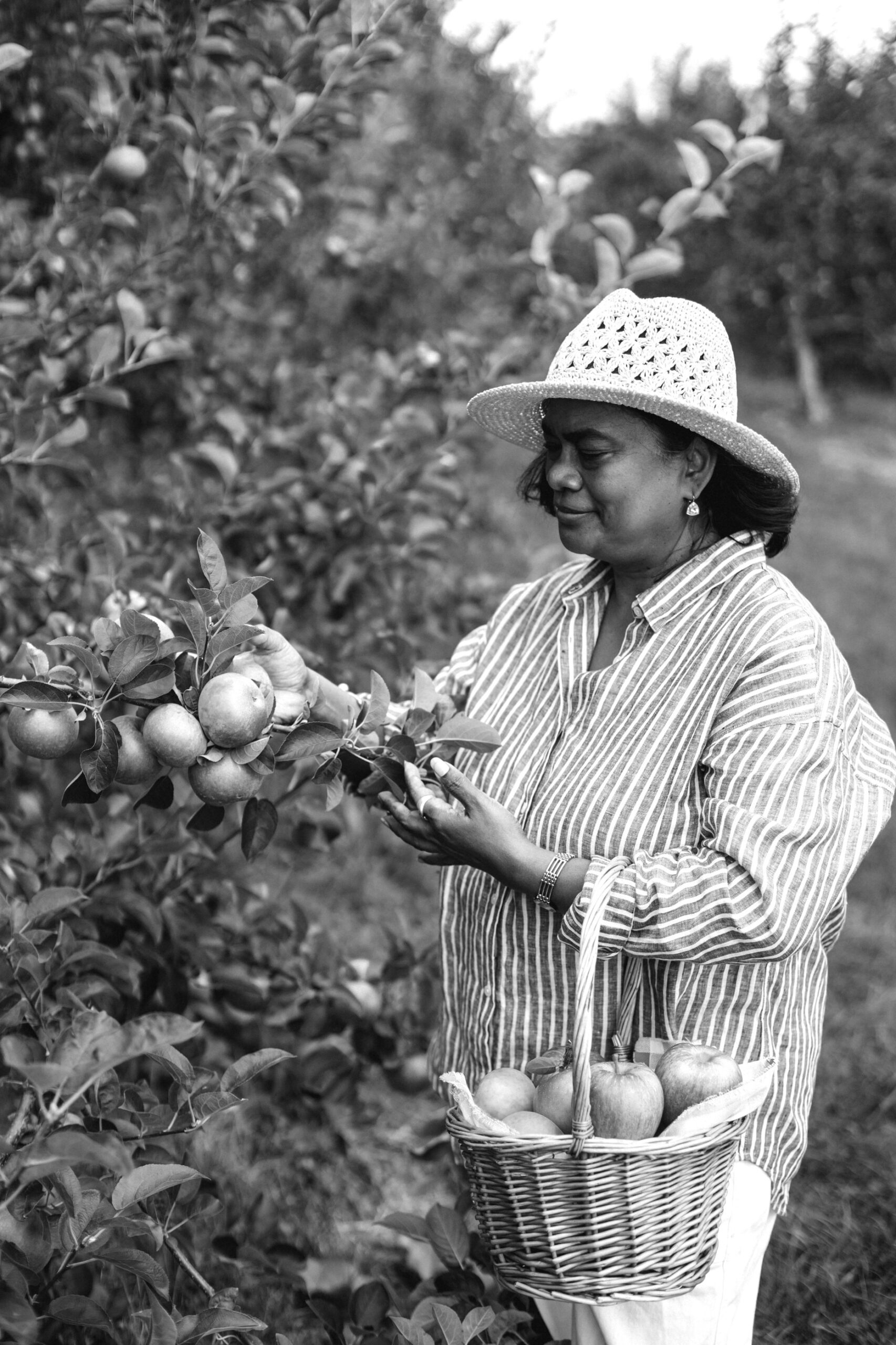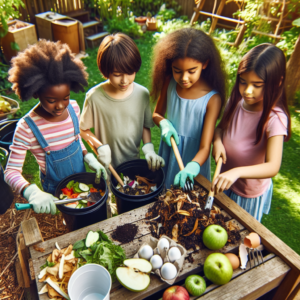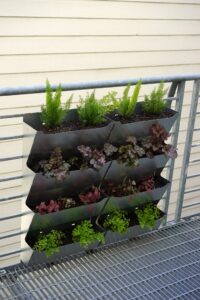Contents
- 1 Unlocking the Emotional Power of Fruit in Therapeutic Gardens
- 2 Harvesting Happiness: Fruit Varieties and Their Mood-Boosting Effects
- 3 Engaging Activities: The Role of Fruit in Horticultural Therapy
- 4 Beyond Aesthetics: Symbolic Meanings of Fruits in Different Cultures
- 5 Fostering Resilience: How Therapeutic Gardens Can Support Stress Recovery
- 6 Frequently Asked Questions (FAQ)
- 7 Author
Unlocking the Emotional Power of Fruit in Therapeutic Gardens

Fruit Garden – https://morningchores.com/faster-fruit-production/
Imagine stepping into a garden where the air is sweet with the scent of ripening fruit, and the vibrant colors lift your spirits instantly. This is the power of fruit in therapeutic gardens, a natural sanctuary designed to soothe the soul and mend the mind. Let’s explore how these luscious gifts from nature can be more than just a treat for the palate—they can be a balm for the psyche.
Key Takeaways
-
Fruit in therapeutic gardens offers a multisensory experience that can elevate mood and promote mental well-being.
-
Understanding the science behind fruit and mood enhancement empowers us to harness their full potential.
-
Each fruit variety brings its own unique mood-boosting effects, contributing to a diverse healing environment.
-
The colors and flavors of fruits play a significant role in influencing our emotions and feelings of joy.
-
By thoughtfully integrating fruit into garden spaces, we can create a powerful tool for emotional healing and resilience.
Nurturing Minds with Nature’s Sweetness
When we talk about the sweetness of nature, it’s not just about taste. It’s about how nature, with its bountiful fruits, can nurture our minds. From the sun-kissed strawberries to the mellow mangoes, each fruit has the potential to offer comfort and joy. It’s like nature’s way of whispering, “Take a moment, savor this, and let your worries melt away.”
The Science Behind Fruit and Mood Enhancement
The connection between fruit and mood goes beyond just feeling good about eating something healthy. There’s a science to it. Fruits are packed with vitamins, minerals, and antioxidants that can help regulate our mood. For instance, bananas contain high levels of tryptophan, which our bodies convert into serotonin, the ‘feel-good’ neurotransmitter. This is not just food for thought; it’s food for happiness.
Harvesting Happiness: Fruit Varieties and Their Mood-Boosting Effects

“vegetables could tackle food waste …” from www.qmul.ac.uk
Each fruit in the garden is like a different instrument in an orchestra, each playing its own tune to lift your spirits. The crisp crunch of an apple, the tart sweetness of a cherry, and the creamy texture of an avocado all bring a unique set of mood-boosting effects. Together, they create a symphony of flavors that can harmonize our mental state.
The Cheerful Palette: Colors and Emotions
It’s not just the taste of fruits that can make us happier; it’s also their colors. The bright red of a ripe tomato, the deep purple of a juicy grape, and the sunny yellow of a lemon can all trigger positive emotional responses. Colors are a language that our minds understand instinctively, and in a therapeutic garden, they paint a landscape of joy.
Juicy Joy: Tasting Happiness Through Flavor
Flavor is a powerful thing. It can transport us to happy memories, bring comfort, and even spark joy. In a therapeutic garden, the flavors of fruits are like natural elixirs for the soul. Each bite is an opportunity to taste happiness, to savor a moment of pure, unadulterated delight. So, let’s indulge in the juicy joy that fruits offer and let our taste buds lead the way to emotional well-being.
Engaging Activities: The Role of Fruit in Horticultural Therapy

“Couple Gardening Together · Free Stock …” from www.pexels.com
Horticultural therapy goes beyond passive enjoyment of a garden. It involves hands-on activities that engage individuals in the nurturing process of growth. When fruits are part of this therapeutic approach, the activities become even more enriching. They provide tangible goals and rewards, as the act of tending to fruit plants can be a metaphor for self-care and personal growth.
Planting Seeds of Positivity
Planting seeds is an act of hope and an investment in the future. It’s a powerful activity in horticultural therapy, symbolizing the potential for growth and change. As participants plant fruit seeds and seedlings, they’re not just growing plants; they’re sowing the seeds of positivity in their own lives, nurturing the belief that with care and attention, something beautiful will grow.
Garden to Table: Cooking Activities for Emotional Empowerment
When fruits from the garden make their way to the table, it’s a celebration of the cycle of growth and the joy of harvesting. Cooking activities using garden-grown fruits can empower individuals, giving them a sense of accomplishment and pride. These activities connect the dots from soil to sustenance, reinforcing the importance of caring for oneself just as one cares for the garden.
Beyond Aesthetics: Symbolic Meanings of Fruits in Different Cultures

“Strawberry tree (Arbutus unedo) Flower …” from www.picturethisai.com
Fruits are more than just a feast for the senses; they carry deep symbolic meanings across cultures. They can represent life, fertility, and abundance, resonating with people on a spiritual level. Understanding these cultural significances can enhance the emotional impact of a therapeutic garden, making it a place where physical nourishment and cultural identity intertwine.
Fruit Mythology and Its Healing Potential
In Greek mythology, pomegranates symbolize life and regeneration, a theme that’s echoed in stories around the world. When we introduce such fruits into a therapeutic garden, we tap into their mythological power to inspire hope and renewal. It’s a way to connect with the collective unconscious, drawing on ancient narratives that speak of growth and healing.
Integrating Cultural Symbolism into Garden Design
Designing a therapeutic garden with cultural symbolism in mind involves more than planting a variety of fruits. It’s about creating a space that reflects and respects the diverse backgrounds of those who visit. By including fruits that carry meaning in different cultures, we invite visitors to see their heritage reflected in the garden, fostering a deeper connection to the healing process.
Fostering Resilience: How Therapeutic Gardens Can Support Stress Recovery

In the hustle and bustle of modern life, stress can feel like a constant companion. Therapeutic gardens, with their lush fruit plants and tranquil settings, offer a sanctuary for stress recovery. These gardens are not just a retreat from the outside world; they are a place where resilience is cultivated, one fruit at a time.
Natural Elements as a Buffer Against Stress
Nature has an innate ability to buffer against stress. The rustling of leaves, the fragrance of blooming fruit flowers, and the tactile experience of soil between fingers are all natural elements that engage our senses and ground us in the present moment. These sensory experiences can help interrupt the stress response, offering a moment of reprieve and relaxation.
Fruits of Calm: Stress-Relief through Garden Interaction
The simple act of interacting with fruit plants in a garden can be a profound stress-reliever. Whether it’s the focus required to prune a berry bush or the anticipation of a fruit’s first harvest, these interactions encourage mindfulness and a sense of accomplishment. The fruits of our labor, both literal and metaphorical, become symbols of calm in our lives.
Frequently Asked Questions (FAQ)

Can fruit-based therapeutic gardens benefit those with specific mental health issues?
Yes, fruit-based therapeutic gardens can be particularly beneficial for individuals with specific mental health issues such as depression, anxiety, and stress-related disorders. The sensory stimulation from the colors, textures, and flavors of fruits can provide a natural form of therapy, and the act of gardening itself can be a meditative and restorative practice. These gardens offer a peaceful retreat where individuals can focus on the nurturing tasks at hand, which can help redirect negative thought patterns and provide a sense of calm and accomplishment.
What are the best fruits to include in a garden for emotional healing?
The best fruits to include in a garden for emotional healing are those that offer a variety of sensory experiences and can thrive in the garden’s specific climate. Berries such as strawberries, blueberries, and raspberries are great choices for their vibrant colors and sweet flavors. Citrus fruits like oranges and lemons can energize with their bright hues and refreshing scents. Apples and pears are also excellent for their crisp textures and comforting tastes. Ultimately, the choice of fruits should cater to the preferences and therapeutic needs of the individuals using the garden.
How do you maintain a fruit-based therapeutic garden?
Maintaining a fruit-based therapeutic garden involves regular care and attention. This includes watering, pruning, fertilizing, and monitoring for pests and diseases. It’s important to follow a seasonal maintenance schedule to ensure that the plants remain healthy and productive. Additionally, involving the community or garden users in the maintenance process can enhance the therapeutic benefits, as it provides a sense of ownership and engagement with the natural environment.
Can therapeutic gardens with fruits be adapted for urban spaces?
Absolutely! Therapeutic gardens with fruits can be adapted for urban spaces through the use of container gardening, rooftop gardens, and vertical planting structures. Even small balconies or patios can become a mini therapeutic oasis with the right selection of dwarf fruit trees and berry bushes. Urban therapeutic gardens provide a much-needed connection to nature for city dwellers and can be a valuable resource for mental health and community building.
How does engaging with fruit-bearing plants in gardens promote emotional well-being?
Engaging with fruit-bearing plants in gardens promotes emotional well-being by providing a sense of purpose and accomplishment. Tending to plants and watching them grow and bear fruit can be incredibly rewarding. It encourages mindfulness and present-moment awareness, which are beneficial for reducing stress and anxiety. The act of caring for another living thing can also foster empathy and a sense of connection, which are key components of emotional health.
In conclusion, therapeutic gardens with a focus on fruits offer a unique and powerful way to support emotional healing and well-being. By engaging the senses, providing a peaceful sanctuary, and fostering a connection to nature, these gardens can serve as a valuable complement to traditional mental health treatments. Whether you’re an individual seeking solace, a mental health professional looking for alternative therapies, or a community leader aiming to enhance public health, incorporating the elements of a fruit-based therapeutic garden can yield bountiful benefits. So, let’s embrace the natural sweetness and the psychological impact of fruits in our healing spaces, and watch as our communities grow stronger, one fruit at a time.



